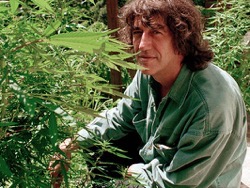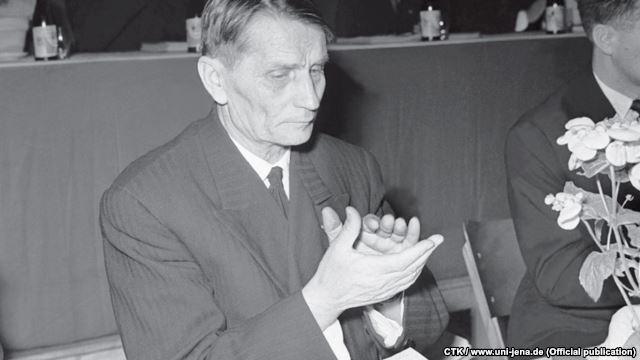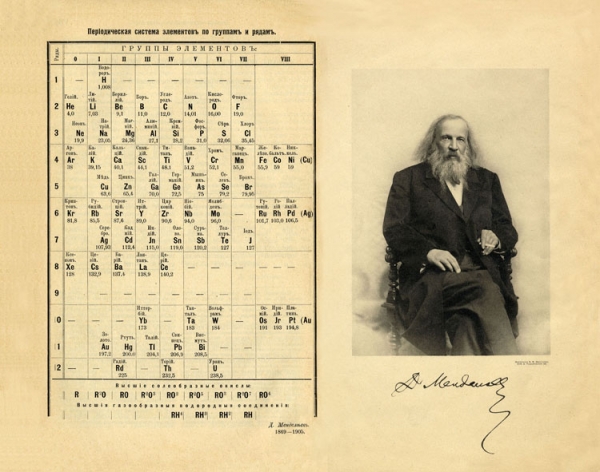
…1990-ies, together with the strong revaluation of all previous ethical and moral foundations of society and led to a complete denial of Russian history of the XX century.
For example, ridiculed the national anthem and the flag of the USSR — the characters are not so much a state as the victors in world war II, first released in the cosmos, who built one of the most powerful States in the history of mankind…
Yes, there was blood and suffering, but it was the exploits and victories.
Take a look at the example of the West, its relation to its history: it is under the modern national anthem of Germany — “German song” Haydn — marched through Europe and Russia Nazi army.
The sounds of the Marseillaise beheaded in the squares of Paris, the French tricolor waved over blown up by the Kremlin in 1812*
*The French themselves almost a hundred years “couldn’t understand” what the French revolution is the greatest offense or greatest achievement. La Marseillaise once again become the only national anthem in 1879
The sounds of the American anthem, “Stars and Stripes”, cut off the scalps of the Indians and broke the bones of slaves.
It is under the British “Union Jack” and “God save the King” ruthlessly colonize the populations of entire continents…
At the end of XX — beginning of XXI centuries the media, television, Newspapers, radio unleashed almost total attack on Russian history. Politicians, historians, writers and even textbook authors, utterly rejecting, mocked the history of their ancestors.
At this time, Leonid Abalkin wrote: “it is Arrogant to deny made by predecessors, to mock their ideals as unjust as it is immoral”12. But is it only about the immorality in this case? Do not repeat history again?
Denikin in 1917 Kerensky wrote: “Russian life Lead to the truth and light under the banner of freedom! But give us a real opportunity for this freedom to lead into battle the troops under our old battle flags, and don’t be afraid! — erased the name of the autocrat, how firmly erased and in our hearts. He is no more. But there homeland. There is a sea of blood spilled. Is the glory of past victories. But you trampled our flag in the dirt…”13
If not trampled once again in the mud Russian history? Why?
The answer was given the same V. Klyuchevsky in the early XX century: “a People without history, like a child without parents, and so with the others you can do anything”.
P. Chaadayev in 1831, remarked: “…Protectee determines the future is the law of life. Renounce your past is to deny yourself of the future”14. After all, the story makes the crowd a nation.
The Frenchman E. Renan in 1882 stated: “a Nation is a great solidarity in the community created a sense of sacrifice which she brought and ready to bring in the future. The nation given its past and gives himself a final look in the present…”15
Alexander Pushkin in 1831, said that the history of the people forms the citizen:
Two feelings are marvellously close to us —
In them finds heart food —
Love to the native ashes,
Love for fathers ‘ coffins.
(They are based on century,
By the will of God himself,
The samostoyaniya man,
The pledge of its greatness.)
S. Kara-Murza in this regard, said: “the school is the main state institution that “creates” citizen and reproduces society. This is a conservative “genetic machinery” of culture”16.
Nietzsche claimed that “all higher education should be historical”…17
John. Seeley was even more categorical: “the welfare of the country and all the interests of its citizens depend on the study of history”18.
The history of each nation is his Bible; it forms from a dispersed crowd of the nation, from the layman citizen.
This postulate is at the very end of his life Pushkin claimed: “I am not at all delighted with everything I see around me… shall swear by the honor, that for anything in the world I would not want to change the country or have a different history than the history of our ancestors, as God gave it…”‘9
A collection of stories of the peoples of the Earth, creates a human civilization.
The denying people their history means not only the rejection of the debt to the past but from obligations to the future. In the end, claimed Mr. Stolypin, “such people die, they turn into terrestrial, fertilizer for the growth and strengthening other, more powerful Nations…”20
Of course, you can search and undoubtedly find a martial ignorance of the history of malice. Even Stolypin pointed out: “Opponents of statehood would like to choose the path of radicalism, the path of liberation from the historical past of Russia…”21
You like Yuri Mamleev, to blame the Soviet system: “Ridicule in relation to his country is similar to the desecration of the graves of the parents. But such ridicule, bullying is a deliberately and carefully cultivated by many journalists… there are reasons. The despotism of the Soviet system brought the thinking man says.” Hatred was blinding, it was moved to the country…”22
But is everything so simple? Do not wear any differences between Russia and other countries more profound?
P. Chaadayev in 1831, on this occasion wrote: “people live only the strong impressions, preserved in their minds from past ages, and communication with other peoples. This way every single person feels his relationship with all humanity.
What is the life of a man, says Cicero, if the memory of proteklih times connects the present with the past?
We stood by the light as illegitimate children without an inheritance, without regard to the people who preceded us, had not assimilated any of the instructive lessons of the past…
We are growing, but do not look ahead; go ahead, but by some indirect direction, not leading to goals”
“We live in a kind of indifference to all, in the close horizon, with no past and the future”23.
According to A. Pushkin: “we Have another descendant of the more cherished star of a cousin than a history of his house, i.e. the history of the Fatherland”24.
Shaped similar observations left V. Rozanov: “When I asked the florist to take flowers to the grave, then I said, “At the Lutheran cemetery?” “No, the Orthodox”. — “Well, sorry, we removed the colors is in any case can not. In half an hour all will dig by the roots…”
And so it is. Also weed grasses on the graves nothing grows. If you want to plant flowers, except for the high lattice, needs to make over the grave of the canopy, and the sides tighten the metal mesh. So something like cells, are extremely ugly. But throughout the cemetery there are such cells, making it look like with desolate menagerie…”25
Noting these features, W. Schubart pointed out: “Russian does not even want to learn from history. He doubts that it’s possible… As Russian live in the moment, he cares little about the past as about the future”26.
To similar conclusions came and M. Paleologue: “Russian live solely by the impressions of the moment. What yesterday felt and thought, for them no longer exists. Their present mood sometimes destroys in them the remembrance of their former views…
In Russia, the scale does not hesitate — she immediately gets a decisive move. All at once is crashing, all images, thoughts, passions, ideas, beliefs, the whole building. For the majority of Russian riding happiness is the constant change of scenery”27.
Schubart found the causes of the differences between Europeans that he’s “culture of remembrance is abusing the human brain. She overloads his scientific rubbish and debris of centuries and drags them, puffing, through all times.
Therefore, it becomes incapable of creative thought: she knows too much, so learns too little. It is engaged in the mummification of all human knowledge…”28
W. Schubart in opposition to the “culture of memory” “culture of oblivion”, characteristic of Russian, which is “unwavering trust life and its forces.”
But then he pointed out that the modern European “man has the middle state of the soul. This makes it cold and businesslike, a constant considered. The Russian soul is alien to the middle. At Russian there is no cushioning middle portion connecting link between the two extremes of ‘ 29. The Russian soul lacked the balancing means ‘ 30.
According to historian A. Akhiezer, that is “inversion” — dashing from one extreme to another — is a characteristic feature of the Russian истории31. Each time the story is written “from scratch, erasing the previous, ruining the society, destroying the accumulated resources of development, and it all starts from the beginning.
Vladimir Kozhin has commented: “Russia — unlike those of Western countries — the country of extremes, and this causes and curses, and the enthusiasm… But the objective and sober look at Russian history seeks to understand this its essential feature, and not to blaspheme and equal to the images, not to praise it”32.
But to an even greater extent this “objective and sober view” should be drawn to the causes and consequences of this “integral features”, to avoid repeating the devastating mistakes of the past.
THE DRIVING FORCE OF HISTORY
History in its pure form is only a list of the visible facts, knowledge of which does little for understanding.
P. Stolypin noted this phenomenon by asserting that “…the apparent truth is often contrary to the truth”33.
D. Mendeleev cited illustration: “it’s true, undeniable truth for any direct observer that the Sun revolves around the Earth, meanwhile the truth gained an inquisitive mind of man, is contrary to the truth”34.
Marx gave this axiom the scientific rigor: “If the form of manifestation and the essence of things directly coincided, all science would be superfluous…”35 But how to find the “essence of things”?
We can distinguish several approaches to this task.
Traditional — comes down to varying interpretations of historical facts. As an example, in this case, can be reasoning B. Tuchman, which concludes that, “forced his way through various interpretations, the historian wanders, trying to find the truth about the days gone by and find out “how it actually happened.” He discovers that the truth is subjective and different, they consist of small pieces of evidence of various eyewitnesses”36.
Followers of this method, realizing it is subjective in nature, in order to improve the reliability complement the traditional approach with the statement, “Not to divide, not to split need history, and monitor… connection of phenomena… Nothing can be without significant harm torn from its historical context”37.
Alternative — A. Shirokorad gives the following justification: “Someone wrote: “History does not tolerate the subjunctive mood”. If you follow this phrase and to consider alternatives to the course of historical events, the historian from the scientist turns into a event logger.
Competent assessment of events is possible only with careful analysis of alternative options… they should not get involved and… to build a chain of subsequent events. Then abruptly decreases the probability, and the historian becomes a science fiction writer”38.
About the same wrote Nietzsche: “Everywhere broad optimism in science. The question “what would have happened if I had not come one or the other?” almost unanimously rejected, and yet it is just crucial question which makes the subject of irony”39.
O. Kasimov offers his version of the theory of “alternatives”, based on “the inexorable logic of development of events, and “requires the historian of the calculus of variations — reflections of reality”40.
Creative interpretation of history — this approach has been called the largest mass distribution. He usually focuses on the characteristics of historical figures, peoples, parties, classes, giving them at the mercy of history. This method is limited to a very narrow part of the object, which does not allow to fully cover the whole picture of the events.
In addition, a creative approach sometimes gives vent to the imagination and are often more drawn to human emotions than to the logic of the events. At best the attempts of creative thinking serve to promote the history, at worst — lead to the creation of custom-made soap operas on historical themes…
Ideological researchers of this direction rule: the victors write the history, and their task is to fit under this “history” of the relevant historical facts.
Nietzsche argued that the principle: “Every story is still written from the point of view of success, and, moreover, under the assumption the reasonableness of this success”41.
M. Lermontov claimed in his verses:
Believe me: the great earth
Different thoughts of people.
Make a success of the wicked —
Great; could not — villain…
If in the Middle ages the driving force of history is uniquely determined by the winning religion in the twentieth century, they became equally unambiguously determine the winning ideology*. The story here is one of the elements of propaganda claiming “facts”.
Most often these methods are not used separately and in particular together, which can sometimes almost get close to “historical truth.”
But the researcher remains infinitely far from understanding it, because all of these methods are merely a reflection of the external forms of manifestation of historical facts and do not answer the key question of the “essence of things”.
The need for a new approach to the study of history pointed out in 1831 by P. Chaadayev in his “Philosophical letters”, which blew the educated society of the time:
“Nowhere are attempts to relate the times… (and) constantly work on the actual material… if you carefully look into the matter, it appears that all the raw materials of history has been exhausted… if still have to give the best explanation of past eras, this problem will be solved not by criticism, which is able to dig in the dump of history, and purely rational methods…”
“Today, a rational view of history would, no doubt, to more positive results.
Mind century requires a new philosophy of history, philosophy of history, which as little resembled old as modern astronomical exercises a little similar to the series gnomonics of the observations of Hipparchus and other astronomers of antiquity. It is only necessary to realize that there will never be enough evidence to prove it, but in order to have so much to anticipate, there were enough of them in the time of Moses and Herodotus.
The facts, as they are not collected, yet will never create credibility, which can give us only a way of understanding them.
Just as, for example, the experience of centuries, to reveal the Kepler laws of planetary motion, was sufficient to discover to he the General law of nature; this discovery fell to the lot of the extraordinary beliefs of a special kind, to share godly thoughts. So we should try to understand the history”42.
A rational understanding of history involves the study of forces acting on society and ensures its development.
After all, the “essence of things” is nothing but an external manifestation of the influence of these forces. Here, by analogy with the definition of periodic for chemistry, it is possible to formulate the main postulate of historical research: “Without an understanding of the interaction of forces, setting it in motion, history is the only narrative source of knowledge”*.
In this case, “interaction of forces” is not accidental, and is subject to the action of objective laws of development of society**.
For the study of forces and laws, twisting the wheel of history is a special science of “political economy”, — the concept of which was proposed by the Frenchman A. Mongredien in 1615 in the book “Treatise of political economy”***.
A. Smith, W. petty, T. Malthus, J. SEI, D. Ricardo, etc. made from the theory of political economy independent study of the internal laws of social development. A prominent German scientist Hegel called the political economy of science, which “does credit to thought because it with a mass of accidents, finds their laws.
Interesting to see how all the interdependencies have here, how special funds are grouped, affect other areas and have them promote themselves or a hindrance.
This reciprocal relationship, the existence of which at first do not believe… this is great mainly because — and this is similar to the planetary system, — that she always presents to the eye only irregular movements; and yet we can know its laws”43.
The Political Economy Of Marx
With Marx in the political economy began a new stage of development. The basic tenet, repeated by Marx countless times in various interpretations, is: “the mode of production of material life conditions the social, political and spiritual life process in General”44.
Engels developed the idea: “Economic production and the inevitable ensuing structure of society in any historical era constitute the basis of its political and intellectual history of the…”45
“Just as Darwin discovered the law of development of human history, Marx discovered that, until recently, hidden under the ideological accretions of the simple fact that… the production of the immediate material means of life and thus each given stage of economic development of a people or epoch form the Foundation from which to develop state institutions, legal views, art and even the religious ideas of these people and which they, therefore, have to be explained — and not Vice versa, as has been done until now”46.
The political economy of Marxism rigidly adopted the primacy of material forces, driving the development of society.
However, the development of society is not only under the action of material forces. Another strength pointed out by Moses a few thousand years before the rise of political economy.
The most complete and deep insight left P. Chaadaev: “All our activity is only a manifestation of forces that cause us all to get in General, in the order of dependency.
Whether we agree with this power or opposed to it, — still, we are forever under her power. So we can only try to give yourself a true report in its action on us… this power, without our knowledge, the current at us is never wrong, it leads the universe to its purpose”47.
“Not knowing the true engine, an unconscious instrument of which he is, man creates his own law, and this law he calls… the moral law…”48
“The moral law is outside us and independently of our knowledge of him… no matter how retarded any sentient being, no matter how limited his ability, it always has some notion of the beginning, motivating him to act. To think, to judge things, you need to have a concept of good and evil.
Rob a man of this concept, and he will not have to speculate or judge, it will not be a reasonable creature”49.
The bearer of the moral law — the spiritual force — since its inception, the Church has become. It for centuries regularly carried its burden, creating appropriate time moral preconditions of development.
But since the beginning of the XIX century philosophers almost unanimously began to celebrate the fall of the role of the Church.
D. Cortes in 1852 in a letter to the Roman cardinal Ferrari predicts apocalyptic turmoil, as: “Pride of a man of our time have taught him two things in which he believed: that he is without flaws, and that does not need God, that he is strong and perfect”50.
At the end of the nineteenth century Nietzsche pronounced “God is dead” and warned: “Nihilism is behind the doors, this is the most terrible of all guests”51. European philosophers foresaw in the increasing spiritual impoverishment of society, the advent of global social and political catastrophes and disasters.
Half a century before Nietzsche P. Chaadaev subtly captured these trends and came to the conclusion that humanity for their survival is inevitably going to put forward shortly a new doctrine that will tie together physical and moral forces of society.
P. Chaadaev even indicated where there is a new doctrine — the understanding of historical laws of development: “For everyone to whom truth is not indifferent, its clear the signs are there… It is the totality of historical facts, properly researched. Now they have to settle into a coherent unified whole, to put into available form and so to Express them that they acted on the souls of men…”52
And this doctrine, which combined the foundations of material and spiritual forces, originated just over a decade later.
Its founders were Marx and Engels who, relying on base politico-economic laws, have given their interpretations of history. Engels pointed out that “political economy in the broadest sense is the science of the laws governing the production and exchange of material good things of life in human society” that it “cannot therefore be the same for all countries and all eras… political economy, in essence, is a historical science. It deals with the historical, i.e. constantly changing the material…”53
I. Schumpeter in the mid-twentieth century found the most important achievement of Marx in the economic interpretation истории54.
With him in fact I agree Gaidar and V. May, who suggested: “the most interesting and relevant components of Marx’s theory are…, the philosophy of history as a method of historical analysis and the theory of economic history”55.
Marxist ideology* by combining science and religion, have acquired a kind of “secular religion”, designed to give answers both the material and moral needs of society**.
I. Schumpeter drew attention that the scientific character of Marxism lends credibility, and elements of religion, the arguments on the subject of good and evil, the moral obligation to make it especially притягательным56.
D. North said: “Despite the fact that the history of technology and communication technologist the economic process written many excellent literature, this issue is essentially beyond the scope of any formal body of theory.
With the exception of the works of Karl Marx, who tried to combine technological change with institutional change”57.
On the other hand, ideologism of Marxism immediately came under justifiable criticism. Thus, L. Foyer noted that ideology unlike science, there is no objective truth, because the ideology is associated with интересами58.
A. Fursov, summarizing the opinion of the vast majority of critics of Marxism, indicates that the strength and the weakness of Marxism was that he “proclaimed himself to scientific ideology”59.
Here, have concluded Gaidar and V. May, “there is a conflict between religious and scientific parties of Marxism…”60
This criticism could be considered fair if the marks put before themselves only for scientific purpose…
Return from Marx to the pure science occurred in the late nineteenth century as the doctrine on rational human behavior in a market economy. Her followers were the first representatives of marginalism***.
As expected, a new interpretation of old science, supported by outstanding scientists, led to the birth of a new science.
In 1902 the British economist A. Marshall marked the beginning of neoclassical political economy and first began to read the course “Economics”. Defining it A. Marshall wrote, “Economics is the study of how people exist, develop, and what they think in their daily lives.
But the subject of her research are mainly those motives that have the greatest and most stable impact on human behavior in the economic sector of his life”61.
The political economy of Marx suffered a crushing defeat with the death of the Soviet Union.
“The prayer book “the new Russian economists” instead of “Capital” Karl Marx was unconditionally “Economics”*.
From the book by V. Galina “restricted economy”







